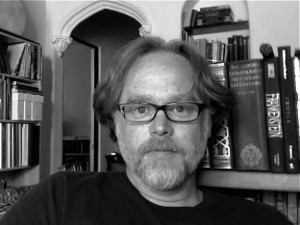 Part of a university education is learning how to navigate the complicated and often competing value systems of different social groups.
Part of a university education is learning how to navigate the complicated and often competing value systems of different social groups.
From the Young Republicans Club and Delta Delta Delta, to the Glee Club and the Muslim Student Union, students have learned how to deal with difference. That is, of course, within certain parameters of legality and university policy, which is precisely where trouble usually begins.
Vanderbilt University was recently featured along with Marquette and UNC Chapel Hill in an article about the challenges facing universities and student religious groups on campus.
Earlier this year,Vanderbilt administrators began a review of all student organizations after the Christian fraternity, Beta Upsilon Chi, asked an openly gay member to resign. That student subsequently filed a discrimination complaint. During the review, Associate Dean Patricia Helland said, school officials discovered several organizations were not in compliance with the school's nondiscrimination policy.
It seems that the "free exercise of religion" stands in conflict with the policies of the universities -- particularly when it comes to the schools' non-discrimination policies.
I wonder if we, as Christians, might need to take a hard look at our assumed place in the center of American cultural ethics. Religious institutions receive tax benefits. Maybe we shouldn't.
Religious institutions do not have to disclose their financial practices with the same rigors as business or other not-for-profit institutions. Though the student groups might be right in principal that the university policies infringe on their free exercise, we have to look at the bigger picture.
Personally, as a Christian, I disagree with the interpretations of other Christians in terms of human sexual ethics. I believe that all are welcome in the Kingdom no matter what our sexual identities may be. Christians are not of one mind on this and many other issues.
How will we respond, however, when we do run up against institutional policies such as those of a university?
As an example, I'm a Christian pacifist (a term I find redundant). I believe that my religion teaches me that coercive violence is wrong and as a Christian it is my responsibility to speak out and even act non-violently when needed.
I have been involved in protests before and have recognized that, though I may be exercising my religious faith, there are institutional and legal boundaries that I may indeed cross in the process. Christians throughout history have often found their beliefs can bring them into conflict with the powers. Sometimes those powers are universities.
At no time in our nation's history was a separation of faith and politics assumed. Instead, we have tried to keep the political power of the institutions separated.
The government is not answerable to the institutional leadership of the church and vice versa in any way other than what a representative democracy might afford. What made this work, of course, was the relative homogeneity of our value systems with the so-called Judeo-Christian ethos at the center.
It appears, however, that our nation's moral compass has shifted once again and there are new boundaries to what is or is not considered an appropriate expression of ideological diversity.
Christians need to continue to debate what is or is not an appropriate expression of our faith claims. We'll need to do that on our own.
Maybe now it's time for us to remember again that the church is not the state and when our faith traditions' moral claims come up against that of the state we cannot be surprised when we feel the pain of those boundaries acutely.
Religious freedom begins and ends with the expressed ethics of our nation's legal system. It always has. It always will.
 Tripp Hudgins is a doctoral student in liturgical studies at the Graduate Theological Union in Berkeley, Calif., and associate pastor of First Baptist Church of Palo Alto, Calif. You can read more of his writings on his longtime blog, "Conjectural Navel Gazing; Jesus in Lint Form" at AngloBaptist.org.
Tripp Hudgins is a doctoral student in liturgical studies at the Graduate Theological Union in Berkeley, Calif., and associate pastor of First Baptist Church of Palo Alto, Calif. You can read more of his writings on his longtime blog, "Conjectural Navel Gazing; Jesus in Lint Form" at AngloBaptist.org.
Got something to say about what you're reading? We value your feedback!